MercoPress. South Atlantic News Agency
Stories for March 14th 2013
-
Thursday, March 14th 2013 - 09:23 UTC
Falkland Islands’ referendum message to Argentina: “intimidation of Islanders must cease”

The Argentine government demands to control the Falkland Islands against the wishes of the people who live there are fundamentally incompatible with modern democratic values and attempts to intimidate the Islanders must cease, said Foreign Secretary William Hague in an update to Parliament.
-
Thursday, March 14th 2013 - 09:14 UTC
Falkland Islands’ referendum, Argentina should yield to reality and peoples’ self determination says Brazilian daily

Under the heading of “Malvinas: British” the influential Brazilian newspaper Folha de Sao Paulo describes the 99.8% result of the Falklands referendum as a “compelling defeat” for the Argentine government and a litigation hard to sustain when international law rests more on the peoples’ perspective than in the historic, real or imaginary territorial possession.
-
Thursday, March 14th 2013 - 09:07 UTC
Argentina furious with Brazil over cancelling of 6bn potash development project
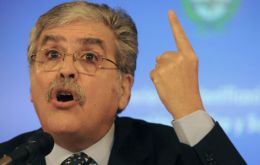
The government of President Cristina Fernandez is furious with the Brazil-based Vale mining company for suspending its 6 billion dollars potash development in Mendoza, the largest investment in Argentina in recent years.
-
Thursday, March 14th 2013 - 09:03 UTC
Falkland Islands’ referendum: for Canada results are ‘very clear’ but for EC it was an ‘internal affair’
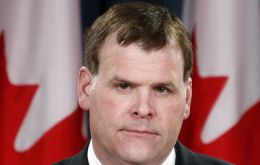
The Canadian government said on Wednesday that the results of the Falkland Islands referendum are “very clear” and “only” the people of the Islands are entitled to decide on their future. However the European Commission refused to get involved in the discussion arguing it is an “internal affair” of an EU member.
-
Thursday, March 14th 2013 - 08:58 UTC
Falkland Islands’ referendum vote blasted unanimously in both Houses of Argentina’s Congress
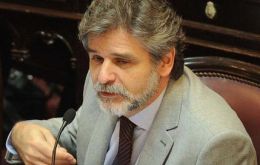
The Argentine Congress in extraordinary sessions held on Wednesday in both Houses unanimously rejected the Falkland Islands referendum in which the local population overwhelmingly decided to remain as a British Overseas Territory.
-
Thursday, March 14th 2013 - 08:50 UTC
Argentine official inflation in February, 0.5% helped by 60 days price freeze

Argentine consumer prices rose 0.5% in February, the smallest gain since June 2009, after supermarkets and home appliance retailers agreed to freeze prices for sixty days, according to the government’s much questioned stats office, Indec.
-
Thursday, March 14th 2013 - 08:46 UTC
Leaders across the world celebrated the election as a historic moment that makes the Church more universal

Leaders across the world celebrated the election of Cardinal Jorge Bergoglio as the new Pope, considering it a “historical moment” and a fact that makes the “Church more universal than ever.”
-
Thursday, March 14th 2013 - 03:04 UTC
Cristina Fernandez will attend inauguration mass for Francis I

Argentine President Cristina Fernández will be attending the official ceremony installing Jorge Ramon Bergoglio as Francis I which is scheduled to take place next March 19. The announcement was made by the presidential office.
-
Thursday, March 14th 2013 - 02:32 UTC
Francis, a name full of history, signals and pure orthodoxy
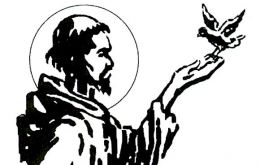
In choosing a name no other pope had ever taken, Pope Francis could be signalling that he sees the need for change in the Roman Catholic Church. The name recalls two of the church’s most famous saints.
-
Thursday, March 14th 2013 - 02:14 UTC
Three firsts for Habemus Papus: Argentine, Jesuit and announced in twitter
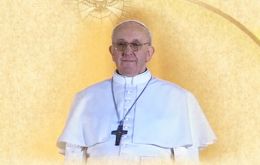
Three firsts for the new Pope: Argentine, Jesuit and his election by fellow cardinals was announced by twitter. Jorge Mario Bergoglio, is a theological conservative with a strong social conscience, and a modest man who declined the archbishop's luxurious residence to live in a simple apartment and travel by public transport.
